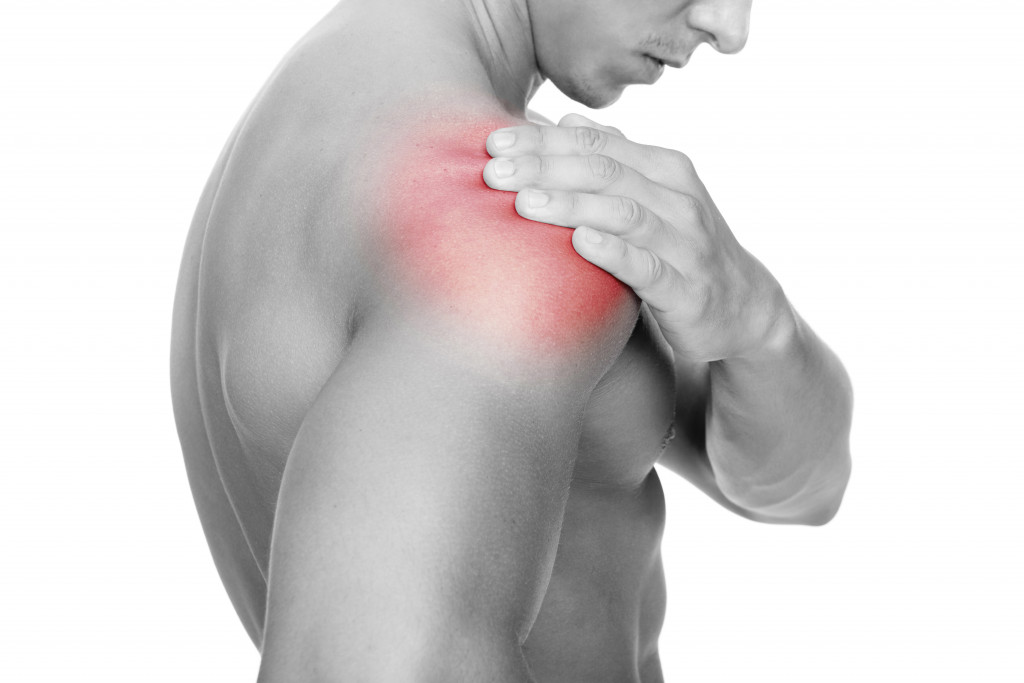Whether you’re a seasoned athlete or a weekend warrior, chances are you’ve dealt with muscle soreness at some point. And if you have, you know that it can be debilitating. Many people reach for painkillers and other over-the-counter remedies when the soreness strikes, but these can be a Band-Aid solution that may do more harm than good in the long run.
The good news is that there are ways to deal with muscle soreness so that you can get back out there and do what you love—pain-free. Here are some of the best ways to deal with muscle soreness, backed by science.
1. Apply Ice Packs for 15-20 Minutes
One of the first things you should do when you start feeling muscle soreness is to apply ice packs to the area for 15-20 minutes. This will help reduce inflammation and pain. It’s essential not to leave the ice packs on for too long, as this can cause tissue damage. You should also never apply the ice packs directly to the skin.
Wrap the ice packs in a thin cloth or towel before applying them to the affected area. This will help protect your skin from frostbite. You can also alternate between ice and heat packs to get the best results. This technique is known as contrast therapy and can help reduce inflammation and pain. The heat will help to relax the muscles, while the cold will help reduce swelling and inflammation.
2. Consider Massage Therapy
Many people opt for massage therapy to help reduce muscle soreness and tension. Massage can help increase blood flow to the affected area, which in turn helps to reduce inflammation and pain. Massages also help to relax tense muscles, which can help you move more freely and with less discomfort.
There are many different kinds of massages you can try. Cupping therapy is one option that many people find to be particularly effective. This type of massage involves using special cups, which are placed on the skin and moved in a circular motion. This helps to increase blood flow and reduce tension in the muscles.
You may also try a Swedish massage, which can help improve flexibility and reduce muscle soreness. This massage uses long, flowing strokes and is often used to reduce stress.

3. Take a Hot Bath or Shower
Taking a hot bath or shower can also help reduce inflammation and pain. The heat will help increase blood flow to the muscles, which will aid in the healing process. Just be careful not to overdo it—start with 10 minutes and work your way up from there. A good rule of thumb is to stop when you start feeling too hot.
You can try adding Epsom salts or other bath soaks to the hot water for an extra boost. These are believed to help reduce inflammation and pain due to their high magnesium content. The added minerals can also help your body to relax and recover. You can also add essential oils to your bath or shower to help you relax more. Just make sure to avoid oils that are known to be skin irritants.
4. Stay Hydrated
Staying hydrated is essential for your overall health and well-being, but it can also help reduce muscle soreness. Drinking plenty of water can help keep your muscles hydrated and functioning properly. It can also help reduce inflammation, which will, in turn, help to reduce pain. Water will also help to flush out toxins, which can further reduce inflammation.
If you’re finding it difficult to drink enough water throughout the day, try adding some flavor to your water. You can try adding slices of lemon, cucumber, or even a splash of juice for a bit of flavor. This will make it easier to drink the recommended amount of water each day.
5. Eat Anti-Inflammatory Foods
Certain foods have anti-inflammatory properties that can help reduce inflammation and pain. Eating a diet rich in fresh fruits, vegetables, healthy fats, and proteins will help your body to recover faster. Some of the best anti-inflammatory foods include fatty fish, such as salmon and tuna, as well as extra-virgin olive oil, nuts, and seeds.
You may also want to consider adding supplements to your diet to help reduce inflammation and pain. Turmeric and ginger are two natural supplements that have anti-inflammatory properties. They can be taken in capsule form or added to food and drinks for an extra boost. Finally, make sure to avoid processed and sugary foods, as they can increase inflammation.
If you’re dealing with muscle soreness, there are certain things you can do to find relief. These include applying heat and cold to the affected area, trying massage therapy, taking a hot bath or shower, staying hydrated, and eating anti-inflammatory foods. With a little bit of self-care and patience, you can find relief from muscle soreness and get back to feeling your best.

